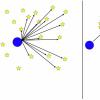My preference for C8 has no relevance to your Essential Tremor. If the theory is that the MCT oil is helping, then why switch. Looking at the makeup of the Viva MCT at 60 % C8 and 39% C10, it is possible that they both play a role, but if not you are still getting the C8. The information which you mentioned for the E.T. I believe used C8 Octanoic or Caprylic Acid.
I mentioned in the other thread that I had read that the C10 Capric Acid (Decanoic Acid) worked for some things which C8 Caprylic Acid Octanoic did not. You likely already know to take what I write with scepticism, especially when looking at these studies. Here is what I was referring to.
"Recently, it has been established that decanoic acid has antiseizure effects at clinically relevant concentrations in vitro and in vivo (Chang et al., 2013; Wlaz et al., 2015) but octanoic acid does not, and with previous in vivo pharmacokinetic data indicating that decanoic acid penetrates the blood–brain barrier (Oldendorf, 1973), these data suggest that decanoic acid directly contributes to the therapeutic effect of the MCT ketogenic diet. Indeed, in vitro, decanoic acid is more potent than valproic acid [a branched chain fatty acid isomer of octanoic acid, that is commonly used in the treatment of epilepsy (Chang et al., 2013), and which has been shown to act on phosphoinositide signalling in seizure control (Xu et al., 2007; Chang et al., 2012, 2014a)]. Thus, it is unclear if ketones or decanoic acid provide direct, acute antiseizure effects during administration of an MCT diet, and by what mechanism. These questions are addressed here."
"Seizure control by decanoic acid through direct AMPA receptor inhibition"
"The medium chain triglyceride ketogenic diet is an established treatment for drug-resistant epilepsy that increases plasma levels of decanoic acid and ketones. Recently, decanoic acid has been shown to provide seizure control in vivo, yet its mechanism of action remains unclear. Here we show that decanoic acid, but not the ketones β-hydroxybutryate or acetone, shows antiseizure activity in two acute ex vivo rat hippocampal slice models of epileptiform activity. To search for a mechanism of decanoic acid, we show it has a strong inhibitory effect on excitatory, but not inhibitory, neurotransmission in hippocampal slices. Using heterologous expression of excitatory ionotropic glutamate receptor AMPA subunits in Xenopus oocytes, we show that this effect is through direct AMPA receptor inhibition, a target shared by a recently introduced epilepsy treatment perampanel. Decanoic acid acts as a non-competitive antagonist at therapeutically relevant concentrations, in a voltage- and subunit-dependent manner, and this is sufficient to explain its antiseizure effects. This inhibitory effect is likely to be caused by binding to sites on the M3 helix of the AMPA-GluA2 transmembrane domain; independent from the binding site of perampanel. Together our results indicate that the direct inhibition of excitatory neurotransmission by decanoic acid in the brain contributes to the anti-convulsant effect of the medium chain triglyceride ketogenic diet"
https://www.ncbi.nlm...les/PMC4805082/
Edited by Heisok, 12 October 2017 - 04:05 AM.






















































